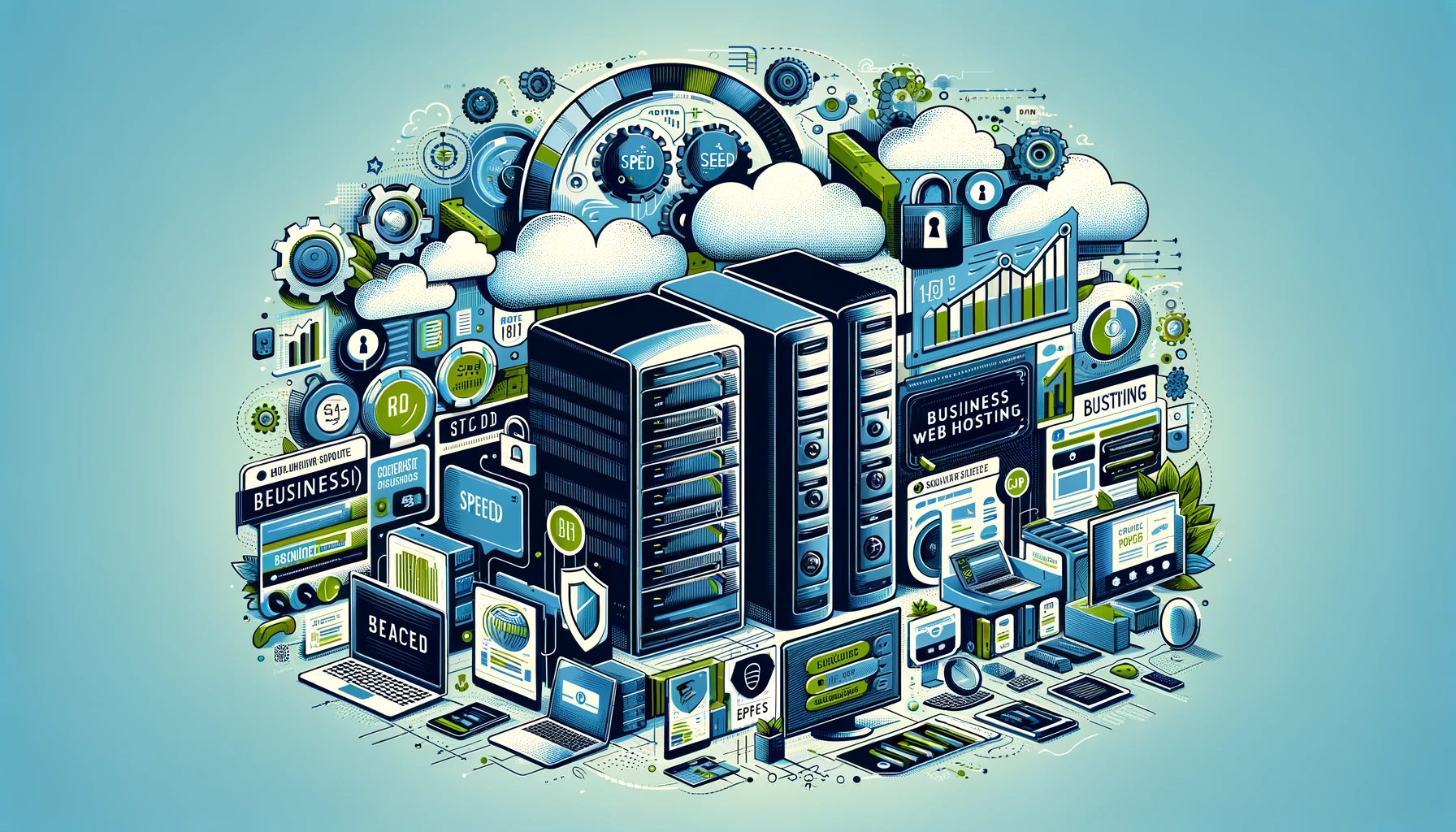How to Know When Your Business Needs a New Server

Signs That Your Business Needs a New Server: A Comprehensive Guide
So, you already have a dedicated server or VPS plan to host the website for your business. Your website is running smoothly and business is going well, with no changes to your hosting arrangement needed. You may think that with this server, your business’s internet needs will be fulfilled for the foreseeable future. However, there may come a time when you need to add an additional server, or servers, to your hosting roster. Perhaps your business has grown exponentially, maybe you’ve moved to a more demanding platform, or maybe you need new cutting-edge components.
There are a multitude of scenarios in which you may need a new server, and it’s important to recognise when you need to expand. In this blog post, we’ll help you understand the most obvious signs that your business needs a new server.
Signs That Your Business Needs a New Server
Of course, we can’t possibly cover every scenario where you would need a new server, so here we will explain the most common signs that might indicate that you need a new server for your business.
Website Performance is Suffering
Your website’s performance is one of the most important things to consider when running a business with an online presence. You’ll want to ensure that your website loads as quickly and efficiently as possible while also providing an attractive, usable interface for your visitors to navigate through. If your website’s performance is suffering, this could lead to website visitors leaving, and could even result in you losing potential customers!
If you are finding that your server’s performance is suffering, then this could be a clear indication that you need a new server. It might not be immediately clear why your server’s performance is being hampered – perhaps you have some malfunctioning or faulty components, perhaps your server’s network connection is inadequate, or maybe you have some corrupted hard drives.
In any case, if you realise that your server’s performance is being affected, you should contact your hosting provider immediately as you may require a brand new server.
Poor Security
In this digital age, security is one of the leading concerns for anyone working with computers. Regularly, we hear of high-profile hacks and cyber-attacks against businesses and individuals around the world. As technology rapidly evolves, so do the backdoors and exploits that are used by malicious cyber criminals. Account compromises and cyber-attacks are, unfortunately, a common occurrence.
If you have a dedicated server or VPS plan, then you’re facing an even higher level of threat. If you fail to properly lock down and protect your server, not only will you risk a malicious third party gaining access to your server – you’ll also risk losing all of your work. When a hacker has gained access to your system and installed a backdoor, it’s likely that you might never detect this, and they could access your system again whenever they please.
As a bare minimum, your server should be equipped with a software (or ideally, hardware) firewall, strong DDoS protection, brute force protection, SSH key authentication, and regular backups. We also recommend you accommodate physical security measures, redundancy of some form, uninterruptible power sources, and a Virtual Private Network (VPN).
If your server doesn’t have any of the above, or can’t, then you should seek a new server for your business.
You Require More Control
For many of our customers, a dedicated server or VPS is necessary in order to use a specific platform or development environment. Unlike shared hosting, with a server, you have full control to install any software you’d like. That’s one of the reasons why it’s an ideal choice for software developers, or those with a specific dedicated platform.
If you’re on a shared hosting plan, then there’s a good chance that you’re very restricted in terms of what you can install, use, and manage. Since shared hosting means many customers being hosted on the same server, the hosting provider has to enable restrictions and limits on user accounts. For many, these restrictions won’t allow them to use what they need.
A dedicated server gives you complete control over every aspect of your hosting environment. You can choose every aspect of your setup – from the control panel to the underlying software, to the hardware components! With a shared hosting plan, for example, this simply isn’t possible.
Your Business is Expanding
When you’re running a business, one of your key goals will be to expand your reach, audience, and presence. If you’ve reached the point where your business is growing rapidly, then that’s a good sign! However, bear in mind that if your business grows, you may need to scale up your hosting setup to accommodate these changes.
Expanding might mean that you’re starting a new regional division and therefore need a new website for your visitors. Or maybe you’re branching out into different industries and need to develop a rebranded website.
In any situation like this, you may find that you need a new server to facilitate this. It’s not always easy to change your existing setup, so having a new dedicated server will not only help accommodate your changes, but it also gives you some breathing room for any future growth.
You Need More Resources
There may come a time when you find your hosting arrangement isn’t providing the necessary resources for your website. If, for example, you have a huge influx of new website visitors due to a successful promotion or viral social media post, your hosting plan might not be able to cope. Without the necessary resources, your website would become unavailable.
Sometimes you can’t easily add more resources to your existing setup, but you may urgently need more memory or storage for your server. As a long-term solution to this, you may want to look into a new server or VPS. Future-proofing your website is the best way to prevent undesirable situations from occurring! If it’s imperative that your website stays online, you may even want to look into a redundant setup to handle any outages or downtime.
New Software or Applications
As your business grows, you may find the need to incorporate new software or applications to improve your operations. These applications might require more resources or specific configurations that your current server setup cannot support. For instance, you might need to install resource-intensive applications for data analytics, customer relationship management (CRM), or enterprise resource planning (ERP).
In such cases, having a new server with the required specifications can be crucial. This ensures that your business operations run smoothly without any hitches. Moreover, with a dedicated server, you can configure the server environment to meet the specific requirements of the new software or applications.
Compliance Requirements
Certain industries have stringent compliance and regulatory requirements that businesses must adhere to. For example, industries like finance, healthcare, and e-commerce have specific regulations regarding data security and privacy. If your business falls under such categories, you might need to upgrade to a new server to meet these compliance requirements.
Having a dedicated server can help you implement the necessary security measures and controls to comply with industry standards. This includes data encryption, secure backups, access controls, and regular security audits. Failure to comply with these regulations can result in hefty fines and damage to your business’s reputation.
Backup and Disaster Recovery
In today’s digital world, data loss can be catastrophic for any business. Having a robust backup and disaster recovery plan is essential to safeguard your data. If your current server setup does not support comprehensive backup solutions or if you have experienced data loss in the past, it might be time to consider a new server.
A new server can offer advanced backup solutions, such as automated backups, offsite storage, and quick data recovery options. This ensures that your data is protected and can be restored quickly in case of any unforeseen events, such as hardware failure, cyber-attacks, or natural disasters.
Improved Technology
Technology is constantly evolving, and newer server hardware comes with better performance, efficiency, and security features. If your current server setup is outdated, you might miss out on these advancements. Upgrading to a new server can provide you with the latest technology, ensuring that your business stays competitive and can leverage the benefits of modern hardware.
Newer servers are typically more energy-efficient, reducing your operational costs. They also come with enhanced security features, better processing power, and improved storage solutions. Investing in the latest server technology can provide a significant boost to your business operations and overall performance.
In Conclusion
We hope you now have a better understanding of how to tell when you need a new server for your business. At UKHost4u, we’re always here to help and fulfil your hosting requirements – whatever they might be!
If you’re looking for a dedicated UK web hosting service, look no further. Our plans are designed to suit any business, big or small.
By recognising these signs and taking proactive steps, you can ensure that your business remains efficient, secure, and ready for growth. Whether it’s improving website performance, enhancing security, or accommodating expansion, upgrading to a new server can provide the resources and flexibility you need to succeed.
Contact Us Today
At UKHost4u, we offer a range of hosting solutions tailored to meet the unique needs of your business. Our dedicated server packages provide unbeatable customisation with the latest server hardware, hosted on our superfast network. Our expert support team is always available to assist you in choosing the right solution for your business.
Don’t wait until your current server setup becomes a bottleneck for your business. Stay ahead of the curve by ensuring your hosting environment is robust, scalable, and ready to meet the demands of your growing business. Let UKHost4u help you navigate the complexities of server management and ensure your online presence remains strong and reliable.
By following these guidelines and recognising the signs that you need a new server, you can make informed decisions that align with your business goals and keep your operations running smoothly. Whether you’re a small business just starting out or a large enterprise looking to expand, having the right server infrastructure is crucial for your success.

